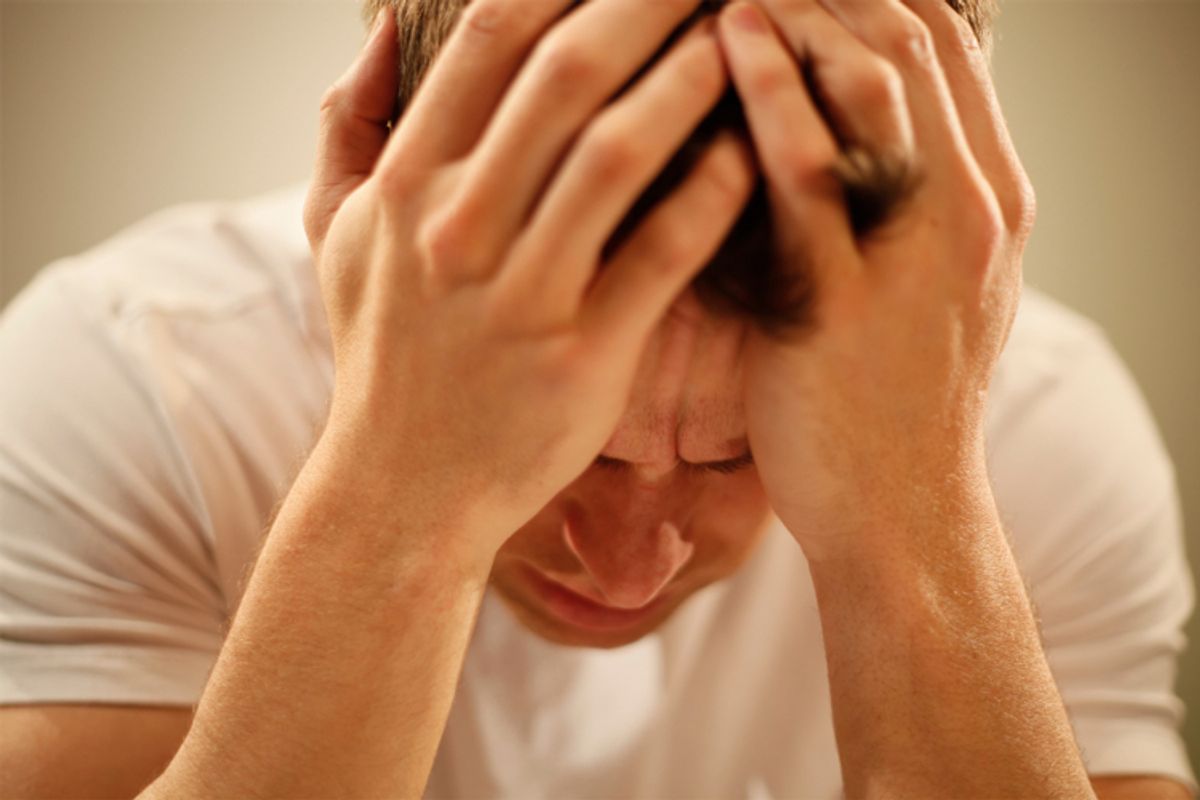"I was the girl no one wanted," Nathan Verhelst said. And then, a few hours later, Nathan Verhelst died. Earlier this month, the 44-year-old Brussels transgender man deliberately ended his life with a lethal cocktail of medication – and he did so with a doctor's assistance and his government's blessing. His death has raised ethical debates around the world.
As the BBC reported last month, Verhelst's case made relatively few headlines in Belgium, where euthanasia has been legal since 2002. In a process described as "serene and beautiful," a fatal dose of barbiturates is administered and the person usually dies "within 5 minutes." Though Belgian Evaluation Commission for Euthanasia says the majority of applicants for euthanasia are over age 60 and more than 75 percent have terminal cancer, individuals can also apply based on emotional suffering. The country reports there were 52 cases of euthanasia for psychological reasons last year.
In an interview with Het Laatste Nieuws before his death, Verhelst described growing up as a girl in an unloving family that had wished for a boy. A conversation with his mother in the same publication seems to confirm his assessment. "When I first saw 'Nancy,' my dream was shattered," she said. "She was so ugly. I had a phantom birth. Her death does not bother me … For me, this chapter closed. Her death does not bother me. I feel no sorrow, no doubt or remorse. We never had a bond which could therefore not be broken."
Verhelst began the process of hormone and surgical transition in 2009 but by last year was severely distressed at the results of a double mastectomy and penis surgery. "I was ready to celebrate my new birth," he said, "but when I looked in the mirror, I was disgusted with myself. My new breasts did not match my expectations and my penis had symptoms of rejection. I do not want to be a monster."
The hospital where Verhelst died told the BBC that he met his end "in all serenity" after an "extremely rigorous procedure" of vetting. In Belgium, candidates must demonstrate a "voluntary, considered and repeated" desire to end life. University of Antwerp professor Evelien Delbeke told the Huffington Post Saturday that "Our legislation is pretty strict. A strict set of conditions needs to be met and several doctors are involved in each case." There is a waiting period, and at least two doctors must approve the procedure – three if the grounds are psychological rather than physical.
For most of us, the instinct to cling to life is so deep that helping another human being end it seems unthinkable. And so for us, the news of Verhelst's death – accompanied by reports of rising euthanasia rates in the three countries where it's legal (Luxembourg and the Netherlands are the others) sends an inevitable chill to the heart. Writing in the Herald Sun Sunday, Rita Panhi said that "what appears compassionate in theory can have sinister implications in practice … we don't want to engender a culture that devalues the lives of the infirm, elderly, disabled or the clinically depressed. A culture where 'mercy killings' become the expected outcome for those considered a burden on society." In the Telegraph, Tim Stanley was even more concerned, stating, "Belgium and the Netherlands list 'death' among their accepted forms of medical therapy, performed with a chilling bureaucratic efficiency that has the effect of making it all appear perfectly normal and entirely routine. What was once forced upon people by authoritarian regimes is now becoming vogue by means of the ballot box. Societies are shuffling towards a culture of death."
Stanley is heartbreaking correct when he writes that Verhelst "needed love." In the U.S., it's estimated that a "staggering" 41 percent of transgender individuals have attempted suicide, a figure that skyrockets even higher among transgender men and women who've been harassed or assaulted. Verhelst's history suggests a life that was marred by extreme mental pain, much of which could have been defused had he been treated with more understanding and compassion from the beginning. Bioethicist Arthur Caplan told NBC this week, "When you move away from the realm of terminal illness, toward judgments about suffering, you are starting down a very dangerous path and one that's extremely slippery" -- and no one with a soul wants to build a world in which the already viciously marginalized are in any way made to feel that their lives are more expendable than others'.
But if you've ever lost someone you loved to suicide, you know how very determined they can be. You know how real and profound their suffering is. When I think of a good friend who killed herself a few years ago, the one thing that gives me peace is the hope that in the end, she found a release from the mental torment that made her life unbearable. It's a state of mind few of us have experienced firsthand, and in a better, kinder world, we would be devoting more resources to the best intervention and medication for those at-risk individuals so that life doesn't become a terminal condition. But even in the best world, there are always going to be people for whom living is too painful. Verhelst needed love but maybe love was never going to be enough to save him. Suffering exists on a continuum, and it's impossible to gauge when it becomes unbearable for any individual – which is why these life and death choices are so hard to judge. For someone in extreme distress, though, how is the option of a razor to the wrist or a gun in the mouth more morally palatable than a physician-administered drug? And how is a mess left behind for a family member to find more compassionate than drifting off in a hospital bed?

Shares